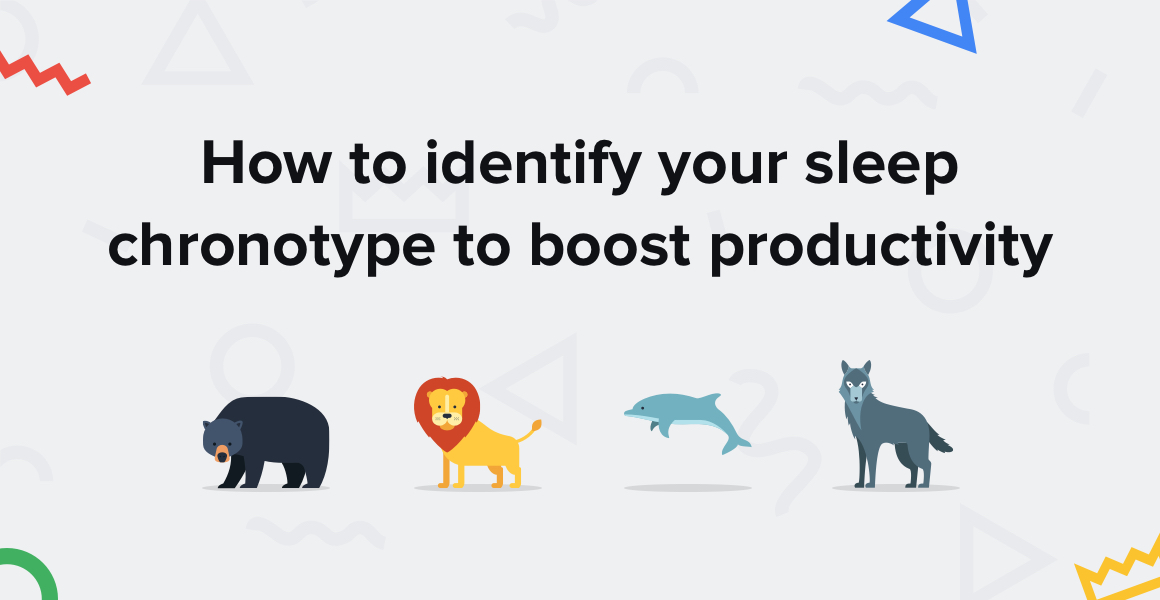Burnout. You’ve probably heard this term a million times, but what does it mean? And when was the last time you didn’t feel burnt out? These days our personal lives are so intertwined with work that we forget to balance the two — burnout surges when we feel overworked and unable to continue in our day-to-day routine. More times than not, high expectations, poor leadership, and the illusion of the ‘ideal worker’ heightens mental exhaustion. The increase in burnout is partly the fault of urgency devices (aka phones) designed to grab our attention. When you finish work, do you feel done, or is work just on a smaller screen?
Right now, many people are reporting “living at work, not working at home,” and there has been a surge in feelings of depression and anxiety-related burnout. It would be a lot easier to say you can cure mental exhaustion by doing more yoga, meditation, or exercise, but that is not the reality. Deep breathing is not a fix for burnout; it’s a bandaid. Unfortunately, we live in a society that acknowledges physical health but stigmatizes mental health, and we need to treat burnout very seriously. The truth is, it’s not your fault that you feel burnt out, and you are not alone.
What is burnout?
Burnout is a natural progression of the overworked — physical and emotional exhaustion, which generally leads to decreased motivation, job performance, and task engagement. If you’re feeling helpless, trapped, or defeated in your profession, this is a sign of burnout. When we're mentally exhausted, we get less done and make more mistakes because we don’t have the energy to get anything done.
Burnout is a direct result of the self-sacrifice we make for our jobs: the dark side of the ‘ideal worker.’ It’s essential to recognize that burnout does not lie with the individual; it’s a managerial issue. If you feel burnt out and unable to cope with the demanding stresses of corporate life, are you comfortable voicing your challenges? Burnout is a fuming epidemic and has multiple sides to the coin: expectations for the ‘ideal worker,’ work-family conflict, motivation-hygiene factors, and the role of the organization.
What causes occupational burnout?
There’s not a simple answer for burnout. We are all real people, with real lives outside of work, but it doesn’t always feel that way, especially when you work from home. Let’s call it a productivity crisis, or perhaps you’re just “not feeling it,” and that feeling of blah hasn’t faded. Maybe it was the realization that you sit in the same chair for 8 hours a day or that your daily routine is making it difficult to tell the days apart. Whatever it is, we are all feeling it, and even as the world slows down, the expectations of the ‘ideal worker’ haven’t. Even if you love your job, it’s still possible to feel run down and mentally exhausted.
According to a recent Gallup study, about two-thirds of full-time workers experience burnout at their job. Gallup surveyed 7,500 workers and reported that 23% of workers felt burnt out at work regularly and 44% sometimes felt burnt out. It seems, unfortunately, that burnout has become a normal part of the job, and many people feel it's an inevitable progression. But, organizations can prevent burnout with maximum effort. If leaders change how they manage their teams, ask the right questions and provide support, we can decrease the number of burnt-out employees.
Gallup found the most common factors of burnout are:
- Unfair treatment at work
- Unmanageable workload
- Lack of role clarity
- Lack of communication and support from manager
- Unreasonable time pressure
Real people, real lives
Work is only a part of your life, but sometimes it can feel like there's no space for anything else. Mental exhaustion often results from an overcrowded workload and pressures to juggle demanding responsibilities while balancing a busy personal life. We all have busy lives at home — whether you’re parenting, pursuing a side-hustle, or trying to practice self-care — work should not be your top priority. While you may love your job, other areas of your life are bound to suffer if you make it your whole life. Take a deeper look at where this pressure stems from. If your leader sets expectations that you can’t meet without a sacrifice, it’s your job to voice any concerns.
As a manager, ask the right questions and create a safe environment to share feedback by empathizing with your employees. The motivation-hygiene theory provides a stable groundwork for improving your culture and work conditions. Job satisfaction is based on hygiene (fair treatment in compensation, supervision, and working conditions) and motivation (personal growth and opportunities for development). Without fulfillment in both of these areas, your employees are likely to experience burnout and become disengaged at work. Asking the right questions will give you more insight into which area is lacking and help you accommodate for the digital era of work.
Uncovering the myth of the ideal worker
For years we have glamorized “the grind” and encouraged workers to strive for excellence at the cost of their mental health, relationships, and productivity. The ‘ideal worker’ puts in long hours at the office, is always available, and pushes personal matters to the side. This traditional ideal has not adapted to the changes in our society, family dynamics, mental health awareness, telecommuting, and overall expectations.
The average workday has increased by 40% in the past year, equivalent to 3 extra hours of work. Due to the lack of commute, workers are starting earlier but finishing around the same time. Some workers are doing the job of three people, child-care, teaching, and managing their 9-5 day job. So we have occupational burnout, parental burnout, and emotional burnout all compiling together at home. Yet, many employers are oblivious — work as usual, except employees, have double the responsibility and half the time.
This concept of the ‘ideal worker’ dates back to the industrial revolution when men were the only breadwinners. As women stepped into the workforce, they were still expected to fulfill the ‘ideal worker’ while balancing family life. Today, both women and men experience work-family conflict. 14% of women and 11% of men admitted to contemplating quitting their jobs due to this imbalance. The ‘ideal worker’ does not exist anymore, and we need to change our expectations to reflect the changes in our society. It’s time to reinvent the ‘ideal worker’ and praise work-life balance, flexible workweeks, and encourage realistic expectations. Remote work has been a silver lining in this pandemic and allowed workers to personalize their workstyle. We need to take this a step further and incorporate more flexibility into the future of work, because we've learned not everyone works the same, and that's where the magic lies.
Related Post: Personalized Productivity: What's Your Personality Type?

How to recharge when you feel burnt out
Perhaps you feel like your workplace is checking all the right boxes, but you’re still feeling mentally exhausted. Many people report a lack of motivation and brain fog, which psychologists have related to chronic, unpredictable stress. In other words, we’re feeling lethargic because the future is so unpredictable, and we're grieving over the loss of normality in our lives. The best thing you can do for yourself is to look at what you can control: sleep, exercise, work, and routine. If you’re feeling stuck, replace your habits and focus on what brings you joy.
Take Breaks during the workday
Grinding for 8 hours a day isn't sustainable, and it’s not good for your mental or physical health. Whether it’s a 15-minute break every few hours, a staycation, or a mental health day, taking breaks will make you more productive in the long run. The longer you stare at a problem, the more likely you will find an overly complex solution, wasting time and energy. Instead, if you take a walk to clear your mind and return to the issue, you will see simple solutions much easier.
Focus on meaning
Reconnect to why you chose your profession in the first place and refresh your passion. Make sure you understand the meaning behind every task. Before you venture out on your next big project, ask yourself ‘why’ and connect with your higher priorities. If you don’t understand why you’re doing something, it's unlikely that you will be motivated to do a good job. If you ask yourself why and don’t know the answer, it might be a good idea to reach out to your manager for clarity or realign your priorities. Rethink how you expand your energy and take time for meaningful work that you can be proud of.
Why am I doing this?
What is the ultimate goal?
How am I contributing to my team?
Why is my job important?
If you feel ineffective or like you’re not doing enough, look for small wins. Focus on the impact you have on other people — whether that be making their job easier, inspiring new ideas, or simply keeping the ball rolling — these are all small wins.
Put your phone away
In the digital age of instantaneous information, messaging, and constant communication, it’s essential to take a break from your devices. If you feel pressure at your organization to respond instantly, talk to your manager about more realistic expectations and set boundaries.
Before you finish your workday, organize and list out the things you need to accomplish the next day so you can rest without constantly checking your phone. This small step will help you clear your mind and give your brain some recovery time.
Related Post: Notification Muting + Vacation Responder: How to Master “I’m Busy”
Support and flexibility
Organizations need to take accountability for employees experiencing burnout, provide informal support, ask the right questions, and empathize with their employees. Gaining control and finding support should not fall on the individual alone. If an employee is dealing with burnout, managers need to ask themselves why and look for environmental factors that could be contributing. Understand what motivates your employees by asking the right questions and take note of any changes you need to make. Organizations have a chance to reduce burnout by asking specific and relevant questions, gathering data, budgeting smarter and prioritizing employee mental health.
Prioritize sleep
You've probably seen this on every anti-burnout article and rolled your eyes because of course, you've tried this. But here's the secret, you will only see the benefits of better sleep if you pay attention to your sleep cycle. Go to bed and wake up at the same time every day, track your sleep and pay attention to when you feel most energized during the day. If you pay attention to your sleep patterns you should be able to predict when you will be most productive.
Related Post: How To Synchronize Sleep Chronotypes and Productivity in 2021

Get organized
Feeling disorganized, unable to tackle your workload, and overwhelmed by your to-do list will inevitably lead to burnout. If you can’t organize the thoughts in your mind, you will feel mentally exhausted and unable to conquer meaningful work. Dedicate time to unpack your thoughts, organize your digital life and unlock a sense of control over your workday to avoid mental exhaustion. Try Shift to organize your workspace, so you can get more done, in less time.















 Share on Facebook
Share on Facebook Share on Twitter
Share on Twitter







